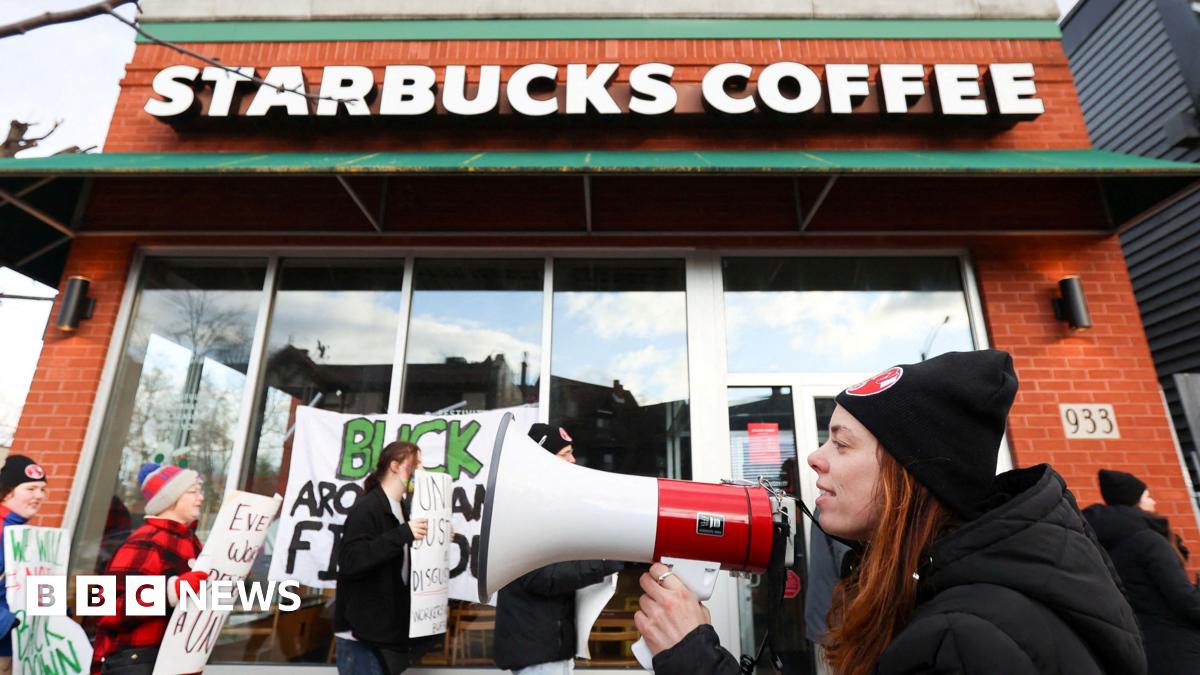Unionised coffeeshops account for only about 5% of all Starbucks stores that are directly owned by the corporation in the US, but union organisers say they have added roughly 100 more stores over the last 12 months.
This continued stand-off could pose both an operational and a reputational risk for the firm, say analysts.
The brand had already shown signs of being under pressure, said Laurence Newell, managing director in the Americas for Brand Finance, a consultancy that tracks brand strength. Starbucks fell to 45th place in its 2025 annual ranking – its lowest level since 2016 – driven in part by a decline in its reputation among customers.
“Happy customers have to come from happy employees,” said Stephan Meier, a professor of business strategy at Columbia Business School. “You can’t do that top down.”
This week, more than 80 Democrats in the House and Senate sent letters to Mr Niccol, accusing Starbucks of “union-busting” and urging the company to bargain in good faith.
Joe Pine, management adviser and co-author of the “Experience Economy”, said Mr Niccol had a lot on his plate, but he was “surprised” that he had allowed the issue to remain unresolved.
“This would seem to be one of the first things you need to do: you need to have your people on board,” he said.
